In the ever-evolving world of functional beverages, energy drinks are undergoing a significant transformation. No longer dominated solely by caffeine-saturated, artificially sweetened formulas, the modern energy drink is shifting toward more holistic, health-conscious formulations. Among the ingredients sparking discussion in wellness communities is cyanocobalamin—a synthetic form of vitamin B12 commonly found in energy drinks. While B12 is essential for cellular energy and neurological function, many consumers are now seeking natural energy drinks without cyanocobalamin due to concerns about its synthetic nature, absorption rates, and potential impact on gut health.
You may also like: Best Herbal Stimulants for Energy and Focus: Natural Uppers That Work Without Caffeine
This shift reflects a broader awareness among consumers who prioritize clean-label products, gut-friendly formulations, and sustainable energy sources that support both cognitive performance and physical vitality. Whether you’re navigating brain fog, seeking pre-workout support, or simply trying to cut back on synthetic additives, understanding the nuances behind natural B12 alternatives—and why cyanocobalamin may be best avoided—is key. In this article, we’ll explore the best energy drinks without cyanocobalamin, examine how they support focus and wakefulness naturally, and address the growing curiosity around topics like the infamous “Celsius drink poop” effect and how ingredient choices may influence digestion.
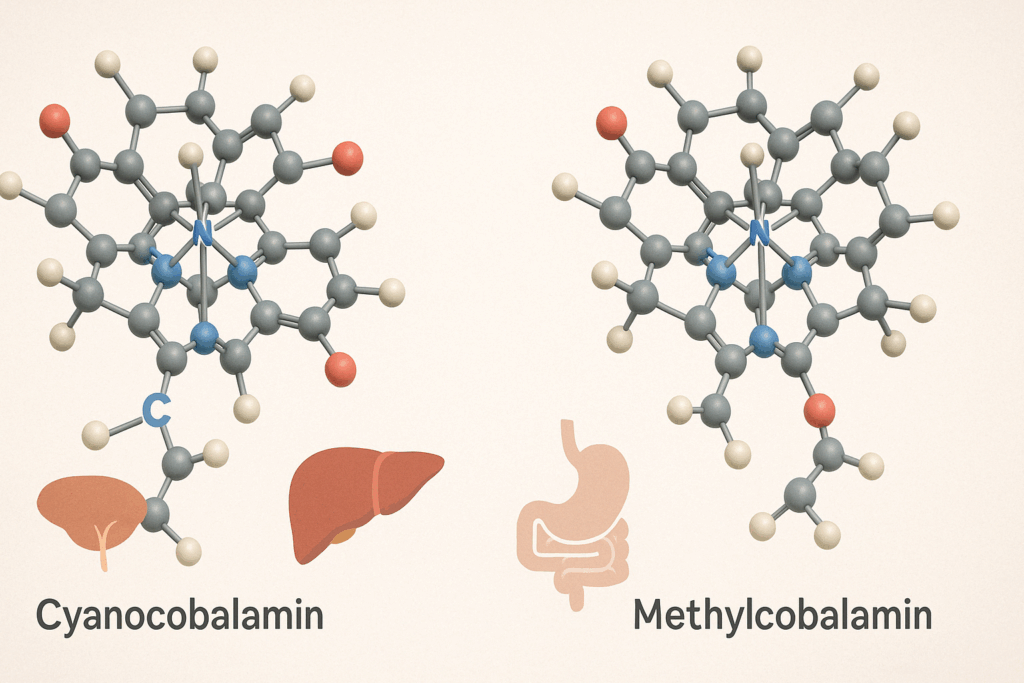
Why Cyanocobalamin Raises Concerns in Energy Drink Formulations
At its core, cyanocobalamin is a synthetic version of vitamin B12 that contains a cyanide molecule. While it’s generally recognized as safe in small doses, its inclusion in wellness products has prompted questions among those seeking cleaner, more bioavailable forms of nutrition. When consumed, cyanocobalamin must be converted by the liver into either methylcobalamin or adenosylcobalamin—active forms of B12 that the body can actually use. This extra step of metabolic conversion may be inefficient in certain individuals, especially those with impaired liver function, gastrointestinal conditions, or genetic variations in methylation pathways.
The widespread use of cyanocobalamin in mainstream energy drinks can be traced to its low cost and shelf stability. However, that convenience often comes at the expense of bioavailability and tolerability. For example, many individuals with sensitive digestion report mild discomfort, nausea, or even changes in bowel habits after consuming energy drinks containing synthetic B vitamins. This is where interest in products like natural energy drinks without cyanocobalamin gains traction—especially among those aiming to optimize energy levels without disrupting gut equilibrium or overwhelming the liver’s detoxification systems.
It’s important to note that not all forms of B12 are created equal. Natural methylcobalamin is the biologically active form found in food sources like eggs, dairy, fish, and meat. This form bypasses the need for conversion in the liver and is readily utilized by the nervous system. For those pursuing gut-friendly, natural solutions to fatigue, finding energy drinks that use methylcobalamin or entirely omit synthetic B12 is a smarter and safer choice.
Understanding the “Celsius Drink Poop” Phenomenon: Gut Health and Synthetic Additives
Few energy drink brands have sparked as much debate as Celsius. Despite being touted as a “healthy” energy option with no artificial preservatives or high-fructose corn syrup, Celsius still contains ingredients that may trigger digestive discomfort in some users. One of the more curious and commonly discussed side effects is what the internet has dubbed the “Celsius drink poop” phenomenon. While anecdotal, many individuals report sudden urges to use the bathroom shortly after consuming Celsius, and there are physiological explanations behind this.
Celsius includes caffeine, guarana, and synthetic B vitamins such as cyanocobalamin—each of which can stimulate the gastrointestinal system. Caffeine is a known gastrointestinal motility enhancer, meaning it increases the contractions that move content through your digestive tract. Add in guarana, which contains more caffeine than coffee beans per gram, and you have a formula that essentially jumpstarts both your brain and your bowels.
Cyanocobalamin may also contribute indirectly. While not a laxative, it’s often paired with other synthetic B vitamins that are difficult to absorb in large quantities. When not efficiently utilized by the body, these compounds can linger in the gut, potentially causing mild digestive irritation, bloating, or altered bowel movements. For individuals sensitive to these ingredients or prone to digestive disturbances, choosing natural energy drinks without cyanocobalamin and minimizing stimulant stacking may offer greater gut harmony.
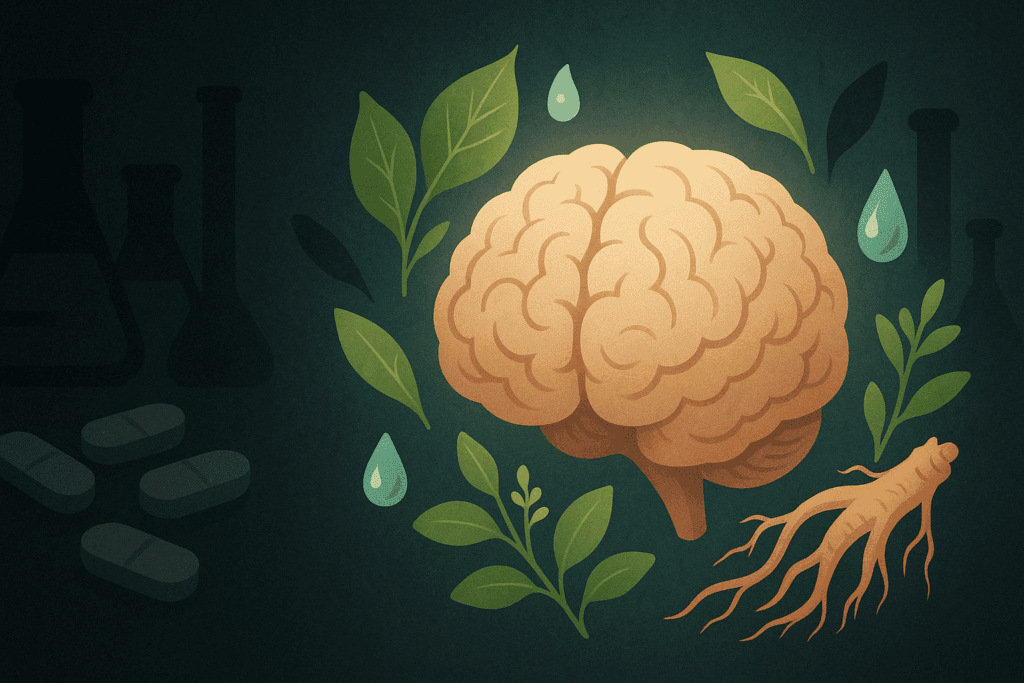
Why Clean-Label Energy Drinks Matter for Mental Focus and Long-Term Health
When we think about energy, we often focus on the immediate buzz—how quickly a product can deliver alertness or clarity. But real, sustainable energy involves more than just stimulants. It depends on a delicate interplay between adrenal support, mitochondrial function, blood sugar stability, hydration, and gut health. Clean-label energy drinks—those made without synthetic B vitamins, preservatives, artificial sweeteners, or coloring agents—align better with this holistic approach to vitality.
One of the core benefits of natural energy drinks without cyanocobalamin is the reduced risk of overstimulation and subsequent crash. Many commercial energy drinks overload the nervous system with synthetic caffeine and lab-produced B12 in an effort to amplify alertness. This often results in a short-term energy spike followed by fatigue, irritability, or digestive side effects. By contrast, clean energy drinks tend to support focus and wakefulness by nourishing the body with adaptogens, amino acids, electrolytes, and plant-based nootropics—all without the harsh comedown.
For example, ingredients like green tea extract, rhodiola rosea, and L-theanine provide a more stable cognitive lift without jitteriness or gut upset. When paired with natural electrolytes from coconut water or sea minerals, these blends offer hydration-based energy that supports brain function and stamina in a more sustainable manner. The absence of cyanocobalamin ensures that you’re not burdening your liver or GI system with synthetic compounds, especially if you’re consuming energy beverages regularly.
What to Look for in the Best Energy Drinks Without Cyanocobalamin
Navigating the crowded energy drink market can be challenging, especially if you’re trying to avoid synthetic additives. Fortunately, a growing number of functional beverages now cater to health-conscious consumers seeking clean energy. When identifying the best energy drinks without cyanocobalamin, it’s helpful to pay close attention to the source of B12 (if included), the type of caffeine used (if any), and whether the product includes supportive ingredients for brain health, endurance, and gut function.
The ideal formulation will clearly state that it uses methylcobalamin instead of cyanocobalamin—or, in some cases, will forgo supplemental B12 altogether, relying instead on whole-food ingredients to deliver natural stimulation. Look for plant-based sources of caffeine such as yerba mate, guayusa, or matcha, which are less likely to cause digestive upset or overstimulation. These botanicals offer a smoother lift in energy and are often paired with calming compounds like L-theanine, which helps modulate excitatory neurotransmission for improved focus.
Also important are ingredients that support digestion and microbiome balance. Ginger, dandelion root, apple cider vinegar, and fermented botanicals are increasingly being included in natural energy drinks for their gut-supportive properties. Since the gut-brain axis plays a crucial role in how we feel both mentally and physically, prioritizing products that respect this connection can make a significant difference in daily performance.
Top Natural Energy Drinks Without Cyanocobalamin to Support Focus and Wakefulness
While the list of clean energy drinks continues to grow, a few standout options have emerged as industry leaders for those avoiding synthetic B12 and seeking gut-friendly alternatives. Brands like Rasa, Sound, and Rebbl have formulated functional energy drinks that rely on adaptogens, nootropics, and plant extracts instead of synthetic vitamin complexes. These products are often crafted with transparency and formulated with sensitive consumers in mind.
For instance, Rasa’s adaptogenic herbal blends are caffeine-free yet energizing due to the inclusion of ashwagandha, rhodiola, and schisandra—all herbs known to support mental stamina and stress resilience. Rebbl’s Maca Cold Brew includes naturally sourced caffeine and plant-based adaptogens without synthetic B12, providing a smoother experience for those looking to avoid jittery highs and digestive irregularities.
Sound Sparkling Yerba Mate offers another clean option. It contains no synthetic vitamins and combines yerba mate with botanicals like hibiscus and citrus for a refreshing, antioxidant-rich boost. These types of drinks not only provide energy but also offer phytonutrients that benefit the gut lining, reduce inflammation, and enhance nutrient absorption. By consciously choosing energy drinks without cyanocobalamin, you’re making an investment not just in your short-term focus but also in your long-term digestive and neurological health.
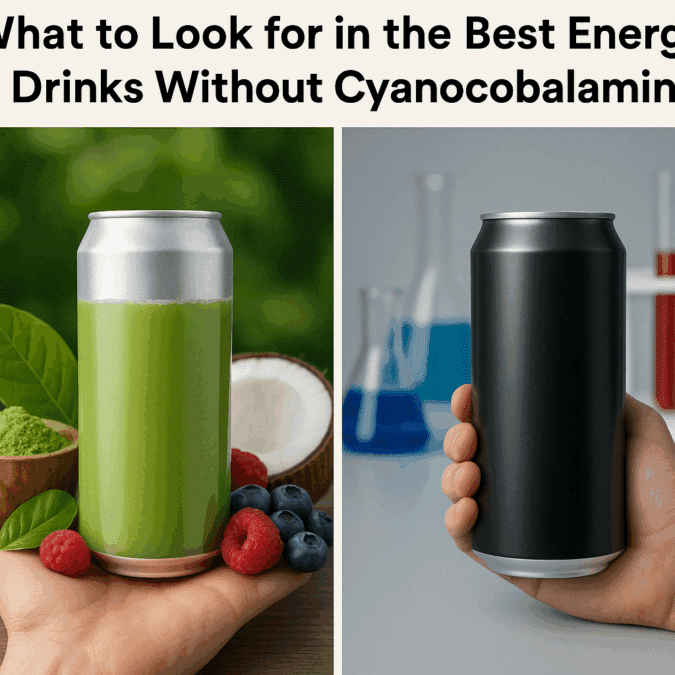
How Natural Energy Drinks Compare to Synthetic Alternatives on Cognitive Performance
The modern professional or student often seeks an edge in productivity, but that cognitive enhancement should not come at the cost of long-term health. Synthetic energy drinks may deliver a surge in dopamine and norepinephrine—neurotransmitters associated with alertness—but they often neglect the underlying nutritional and neurological support systems that maintain sustained focus. This is where natural energy drinks without cyanocobalamin truly shine.
These beverages support cognition by feeding the brain with nutrients and adaptogens that stabilize neurochemistry rather than overwhelming it. For instance, drinks containing lion’s mane mushroom, bacopa monnieri, or ginkgo biloba provide nootropic benefits by supporting memory, mental clarity, and synaptic plasticity. When paired with clean energy sources like matcha or ginseng, they offer a more balanced neurological experience without the crash.
In contrast, traditional energy drinks often rely on synthetic B12 and niacin to simulate energy through vasodilation and adrenal stimulation. While this may feel effective in the moment, repeated use can wear down the body’s stress-response systems, especially in individuals with underlying anxiety or gut issues. Choosing beverages that nourish rather than overstimulate the brain allows for more consistent cognitive output, fewer mood fluctuations, and better overall resilience.
The Role of Gut Health in Energy Regulation and the Need for Synthetic-Free Beverages
The gut plays an often-underestimated role in how we experience energy and mental clarity. It’s not just a digestive organ—it’s a neurochemical powerhouse that produces over 90% of the body’s serotonin and plays a key role in immune function, inflammation regulation, and nutrient synthesis. When synthetic ingredients like cyanocobalamin disrupt the gut lining or fail to absorb efficiently, the result can be bloating, brain fog, or inconsistent energy levels.
Energy drinks that prioritize gut health—by excluding synthetic B vitamins and including prebiotic fibers, fermented ingredients, or gut-friendly herbs—help maintain a strong gut-brain connection. This means more stable mood, better concentration, and enhanced metabolic efficiency. Consumers experiencing the infamous “Celsius drink poop” effect may find relief by switching to beverages that support digestive flow without overstimulation.
By eliminating cyanocobalamin and focusing on ingredients that promote microbiome diversity and intestinal integrity, natural energy drinks offer a better path to true vitality. After all, when your gut feels good, your mind is more likely to follow. Energy isn’t just about intensity—it’s about clarity, continuity, and the capacity to show up fully throughout the day without burning out or crashing.
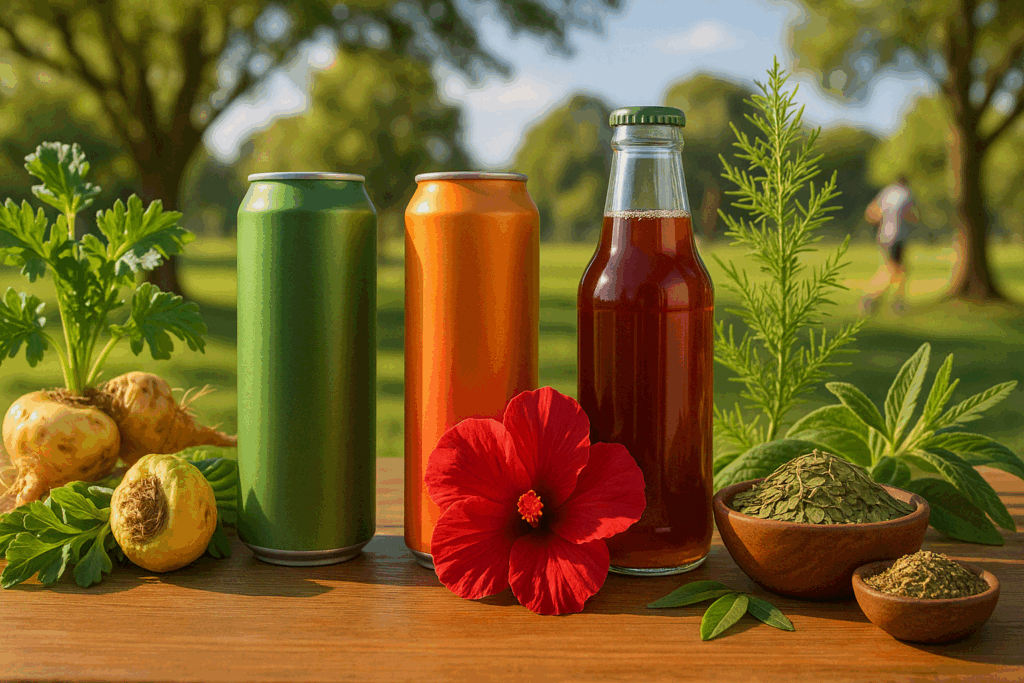
Frequently Asked Questions (FAQ): Natural Energy Drinks Without Cyanocobalamin
1. Why are so many people switching to natural energy drinks without cyanocobalamin?
Many consumers are moving toward natural energy drinks without cyanocobalamin because they’ve become more ingredient-conscious, especially about synthetic B12 forms. Cyanocobalamin, a synthetic version of vitamin B12, is often converted in the body to methylcobalamin, but this process may not be efficient for everyone—especially those with methylation issues or kidney impairment. Natural alternatives that skip cyanocobalamin often use bioavailable B12 forms like methylcobalamin or avoid B12 entirely, relying on other energizing compounds. This shift reflects a broader trend toward clean-label beverages and functional drinks that respect individualized nutrition. As consumers become more educated, they’re asking not just what’s in their energy drink—but why it’s there in the first place.
2. What’s the connection between gut health and ingredients like cyanocobalamin in energy drinks?
Emerging research suggests that certain synthetic additives—including cyanocobalamin in energy drinks—could disrupt gut flora in sensitive individuals. While not inherently harmful for most, some people report digestive side effects like bloating or discomfort, especially when combined with other additives or stimulants. This gut disruption could influence nutrient absorption and even mood, considering the gut-brain connection. That’s why many are opting for natural energy drinks without cyanocobalamin, which tend to contain gentler plant-based adaptogens or naturally occurring B vitamins that are easier on the digestive system. This gut-focused approach reflects a growing preference for energy drinks that support holistic wellness, not just a temporary jolt.
3. Are there any overlooked benefits to choosing energy drinks without synthetic B12?
Yes—choosing the best energy drinks without cyanocobalamin may offer long-term benefits that aren’t immediately obvious. Avoiding synthetic compounds like cyanocobalamin reduces the risk of cumulative exposure to trace cyanide, which although minimal, raises concerns for those with detoxification challenges. Additionally, skipping synthetic B12 may support more accurate nutrient tracking for people on specialized regimens, such as those managing MTHFR mutations. Another overlooked benefit is taste—many synthetic additives slightly alter flavor, so natural alternatives often taste cleaner and more refreshing. Over time, this leads to a more enjoyable and consistent experience, especially for those who consume energy drinks daily.
4. Why do some people report unusual bowel effects like “Celsius drink poop”?
The term “Celsius drink poop” has become a quirky but relevant topic in wellness circles, as users discuss sudden or intense bowel movements after consuming certain energy drinks. These effects are typically due to a mix of caffeine, guarana, and possibly sugar alcohols, which can stimulate the digestive tract. While not dangerous for most, this laxative-like response may indicate sensitivity to stimulants or preservatives. Some drinkers switch to natural energy drinks without cyanocobalamin to reduce this effect, finding that simpler ingredient lists are gentler on their system. If your body reacts strongly to energy drinks, it may be worth tracking your symptoms and experimenting with cleaner formulas.
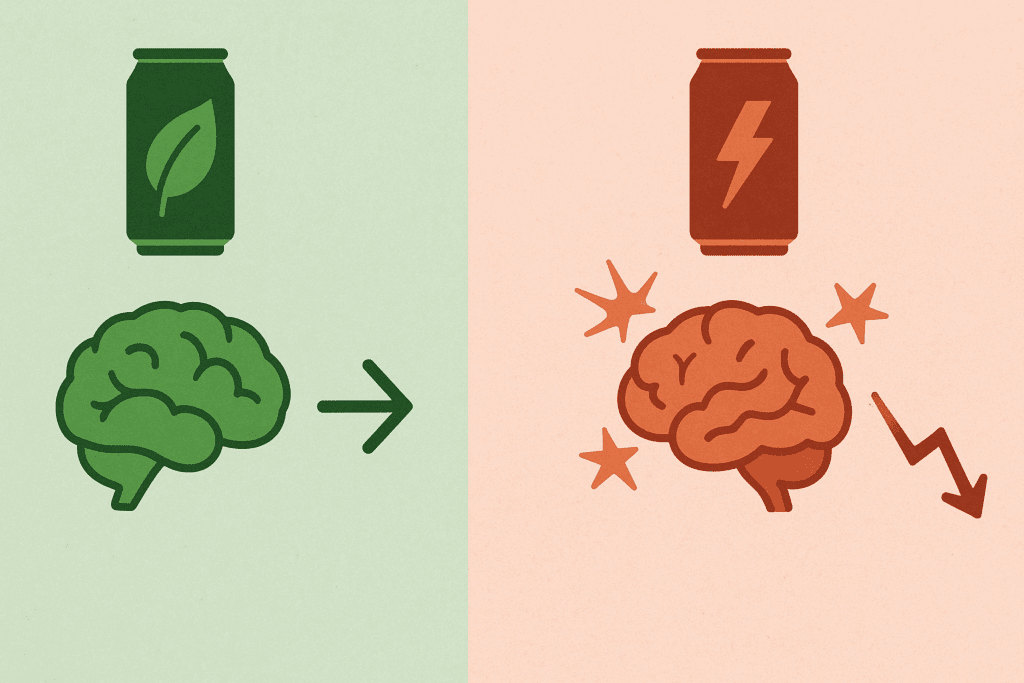
5. Can switching to energy drinks without cyanocobalamin help with brain fog?
Interestingly, yes. Many people sensitive to synthetic B vitamins report that removing cyanocobalamin from their energy drink routine helped alleviate symptoms like brain fog or lightheadedness. This may be due to inefficient conversion or overstimulation caused by synthetic B12 forms. In contrast, natural energy drinks without cyanocobalamin often include cognitive-supportive ingredients like L-theanine, rhodiola, or tyrosine, which promote focus without the crash. Over time, users may find that these natural nootropic blends enhance mental clarity more effectively than synthetic formulas. This personalized approach aligns with the growing biohacking movement focused on optimizing brain performance without overstimulating the nervous system.
6. How do manufacturers formulate effective energy drinks without B12?
To craft the best energy drinks without cyanocobalamin, manufacturers rely on synergistic plant compounds, natural caffeine sources, and amino acids. Ingredients like green tea extract, yerba mate, and matcha provide sustained energy with antioxidant benefits. Others include adaptogens such as ashwagandha or ginseng to support energy resilience under stress. Electrolytes and coconut water may also be added to aid hydration, improving mental alertness without the need for synthetic vitamins. These drinks are often formulated using functional nutrition principles, ensuring the energy boost comes from a combination of factors—not just a vitamin injection. It’s a smarter, systems-based approach to daily performance.
7. Are there safety concerns with chronic consumption of synthetic B12 in energy drinks?
While cyanocobalamin is considered safe in typical doses, long-term, high-frequency use—especially in energy drinks—can pose concerns for certain populations. People with impaired kidney function may have difficulty clearing excess cyanide residues, albeit in very small amounts. There’s also a risk of masking B12-related deficiencies or imbalances if users rely on synthetic forms without addressing underlying absorption issues. That’s why many now prefer natural energy drinks without cyanocobalamin, particularly those using methylated or food-derived forms of nutrients when B12 is included at all. It’s not just about safety—it’s about aligning intake with the body’s real metabolic needs.
8. How does the absence of cyanocobalamin impact vegan consumers?
For vegans, B12 is an essential supplement, and many energy drinks serve as a convenient delivery system. However, not all forms are equally well-tolerated or absorbed. Natural energy drinks without cyanocobalamin may use methylcobalamin, which is more bioavailable and better suited for those with dietary restrictions or absorption challenges. Alternatively, they might exclude B12 altogether, allowing users to manage their supplementation separately for better control. For plant-based consumers focused on purity and performance, these drinks offer a cleaner, more tailored way to support energy and nutrient needs without compromising ethical or health standards.
9. Can caffeine absorption be altered by the presence of synthetic B vitamins like cyanocobalamin?
Although research is limited, some users report that synthetic B12 can amplify or distort caffeine’s effects, especially in multi-ingredient energy drinks. It’s possible that co-administration of stimulants and synthetic vitamins may trigger faster absorption or unwanted overstimulation in sensitive individuals. On the other hand, natural energy drinks without cyanocobalamin often prioritize balanced stimulation using L-theanine or slow-release caffeine sources to blunt peaks and crashes. This can result in a smoother energy curve, especially for those prone to jitteriness or mood swings. Ultimately, removing cyanocobalamin may help clarify how your body responds to caffeine alone, giving you a better handle on your ideal dose.
10. What innovations are on the horizon for natural energy drinks without cyanocobalamin?
The future of natural energy drinks without cyanocobalamin is being shaped by advances in botanical science, sustainable packaging, and AI-driven formulation. Expect to see more drinks with personalized nutrient profiles based on genetics or microbiome data. Companies are also experimenting with fermentation-based B vitamins that mimic food-derived forms, offering both efficacy and sustainability. Additionally, we’re seeing a push toward carbon-neutral production and traceable ingredient sourcing, aligning with broader wellness and environmental values. As demand grows, the best energy drinks without cyanocobalamin will likely evolve into high-tech functional beverages that go beyond just energy—supporting cognitive longevity, immune health, and even emotional balance.
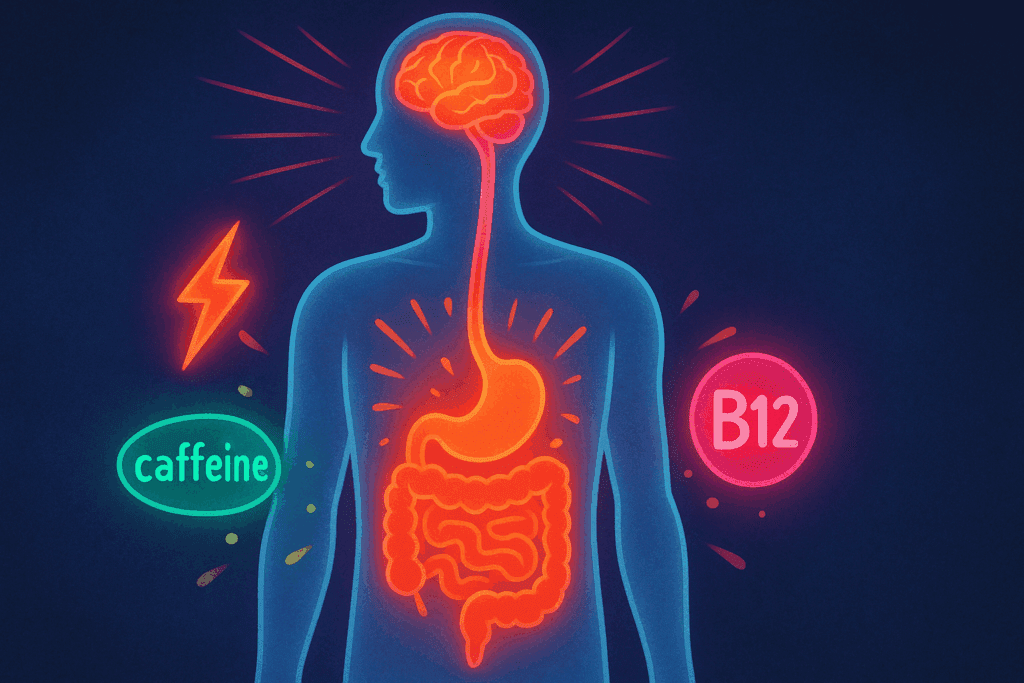
Conclusion: Choosing Natural Energy Drinks Without Cyanocobalamin for Better Energy, Focus, and Gut Resilience
In a marketplace saturated with quick fixes and high-stimulant formulas, choosing natural energy drinks without cyanocobalamin is more than a trend—it’s a strategic investment in your long-term cognitive and digestive health. As the wellness industry grows increasingly sophisticated, more consumers are recognizing that synthetic ingredients—especially ones like cyanocobalamin—may not align with their body’s natural rhythms and biological preferences. Whether you’re responding to the uncomfortable digestive side effects of mainstream products or simply looking to support your brain and gut in a more holistic way, these natural alternatives offer a smarter, cleaner path forward.
From supporting stable neurotransmitter function to protecting the integrity of the gut lining, natural energy drinks without cyanocobalamin provide a gentler and more effective way to fuel your mind and body. They minimize side effects like those reported with drinks such as Celsius and replace synthetic stimulation with bioavailable, nourishing compounds that enhance both focus and wakefulness. In today’s fast-paced world, true energy isn’t just about stimulation—it’s about sustainability, resilience, and alignment with your body’s deepest needs. By choosing clean-label, naturally formulated energy drinks, you’re not just powering through the day—you’re investing in a brighter, more vibrant long-term health journey.
natural energy boosters, caffeine-free stimulants, herbal energy supplements, plant-based energy drinks, brain-boosting beverages, nootropic drink alternatives, focus-enhancing herbs, mental clarity support, stimulant-free focus aids, clean energy sources, gut-friendly energy drinks, adaptogens for wakefulness, healthy alertness options, natural fatigue remedies, safe energizing supplements, daily energy support, non-jittery energy solutions, vitamin-rich energy drinks, holistic energy enhancers, sustainable mental energy
Was this article helpful? Don’t let it stop with you. Share it right now with someone who needs to see it—whether it’s a friend, a colleague, or your whole network. And if staying ahead on this topic matters to you, subscribe to this publication for the most up-to-date information. You’ll get the latest insights delivered straight to you—no searching, no missing out.
Further Reading:
The All-in-one Guide to the Best Energy Drink for Performance Enhancement


